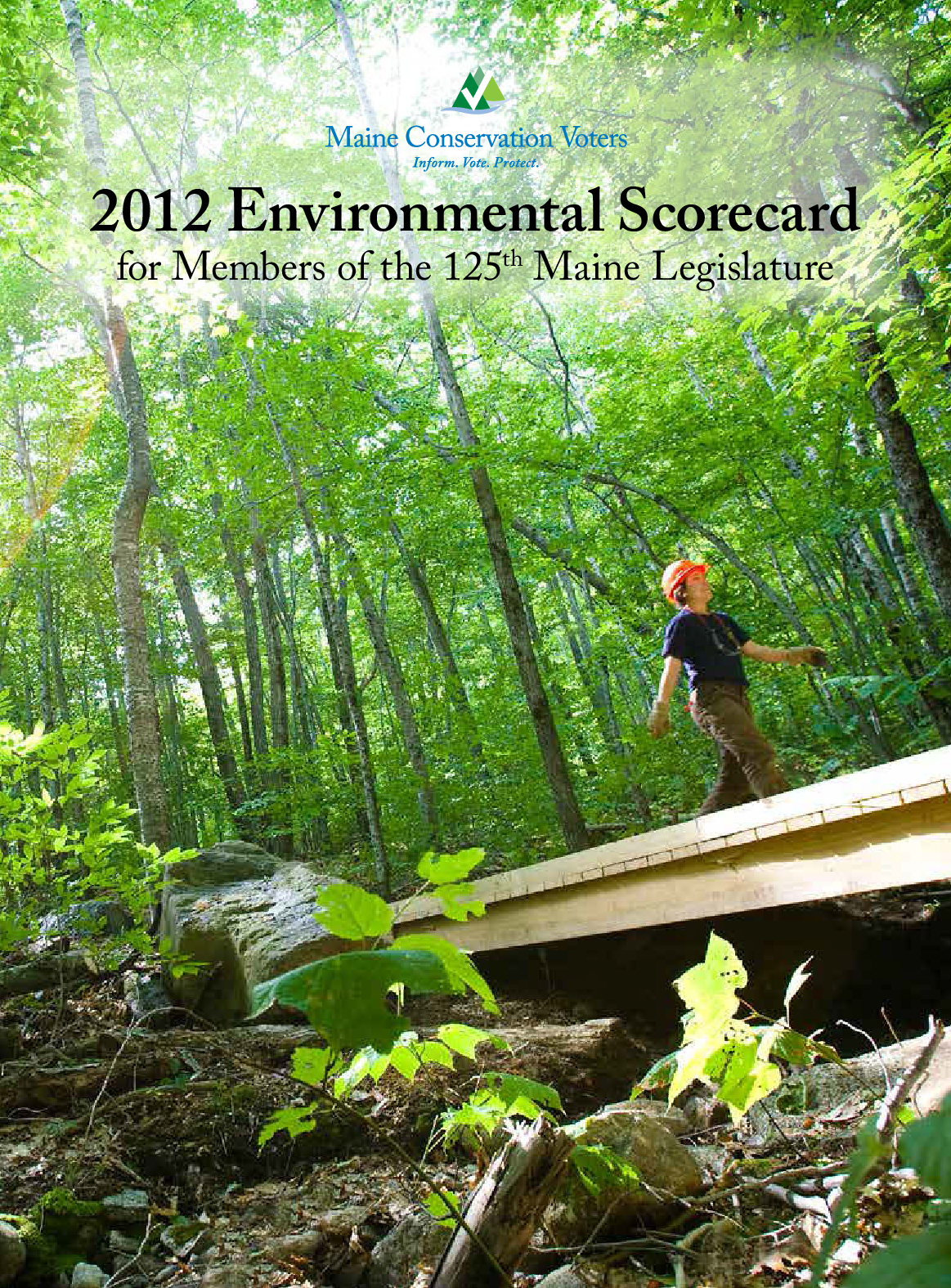 Download
DownloadStatus: Bill passed “under the hammer” (unanimously)
The study commission that was authorized by LD 1534 (see 2011 North Woods summary) culminated in a report which included several objectionable provisions. This report was the basis for LD 1798. One of the most problematic provisions would have allowed counties to ‘opt out’ of oversight by the Land Use Continue...
Status: <p>Bond passed, sent to voters on November 6, 2012 who also approved the bond.</p>
The Legislature authorized a $5 million bond for the Land for Maine’s Future (LMF) program. The bond helps protect working farms, forests and waterfronts that are the backbone of Maine’s economy. LMF has an outstanding record of success protecting Maine’s natural legacy and a history of bipartisan support. Many legislators Continue...
Status: <p>Bill died</p>
The Senate moved to “indefinitely postpone” LD 1810, a bill which would have required the state to pay off landowners if future laws passed by the Legislature reduced their property values by at least 50 percent. If the state could not afford to pay, the landowner would be allowed to Continue...
Status: <p>Bill passed and signed by the Governor</p>
The Legislature passed a bill weakening Maine’s open-pit mining regulations threatening water quality. The bill was introduced during the final weeks of the session, and the condensed process did not allow for full public input or robust scientific scrutiny. The Environment and Natural Resources Committee improved the original bill, but Continue...
Status: <p>Bill died in Non-concurrence (House and Senate could not agree)</p>
The Governor introduced a bill that would have undercut Maine’s existing Renewable Energy Portfolio Standard by removing the 100-megawatt cap on eligibility for hydropower. The bill would have required Maine ratepayers to subsidize massive Canadian hydropower dams at the expense of Maine-produced renewable energy like wind and solar. A majority Continue...
Status: Bill passed and signed by the Governor
The Legislature approved an Inland Waterfowl and Wading Bird Habitat Rule that was drafted by DEP and strengthened by the Board of Environmental Protection. This rule maintains key protections for land and water that are essential to the health of wading birds and waterfowl. It provides an opportunity for a Continue...
Status: <p>Bill passed and signed by the Governor</p>
By passing LD 1647, the Legislature limited citizens’ voices in agency decisions. The bill changed the definition of who can appeal agency actions to the citizen review boards of the DEP and LURC. To appeal a decision, one now must prove a “particularized interest” in the subject of the appeal Continue...
Status: <p>Bill passed and signed by the Governor</p>
LD 1534 set up a study committee that seemed biased toward abolishing the Land Use Regulation Commission (LURC), the state agency charged with protecting Maine’s vast North Woods. Policymakers had the option to support the committee’s Minority Report – a balanced legislative study to identify ways to improve LURC. Instead Continue...
Status: Bill passed and signed by the Governor without anti-environment amendment
With strong bipartisan support, the Senate rejected an amendment from Sen. Ron Collins (R-York) that would have reduced the current, scientifically-supported 250 foot vernal pool consultation zone down to 75 feet. Significant vernal pools are seasonal wetlands that provide critical habitat for a variety of wildlife, including wood frogs, spotted Continue...
Status: Bill passed and signed by the Governor
The Legislature voted to weaken Maine’s Uniform Building and Energy Code (MUBEC) by exempting all towns with a population of less than 4,000 (400 of Maine’s 526 towns). MUBEC provides minimum quality, safety and energy-efficiency building standards. The exemption means that Mainers living in small towns will not be protected Continue...
Status: Bill passed and signed by the Governor
LD 228 repealed Maine’s pesticide notification registry, a common sense and effective system requiring that neighbors and landowners be notified in advance of aerial and air-blaster pesticide spraying near their homes. Over 1,800 people had signed up for the registry in the program’s first year. Pesticides can cause serious health Continue...
Status: <p>Bill passed without the Governor's signature</p>
The legislature overwhelmingly voted to ban the toxic chemical bisphenol A (BPA) in reusable food and beverage containers. BPA is widely used in baby bottles, sippy cups, water bottles, food storage containers and in the lining of metal food cans, including some infant formula cans. BPA is linked to a Continue...